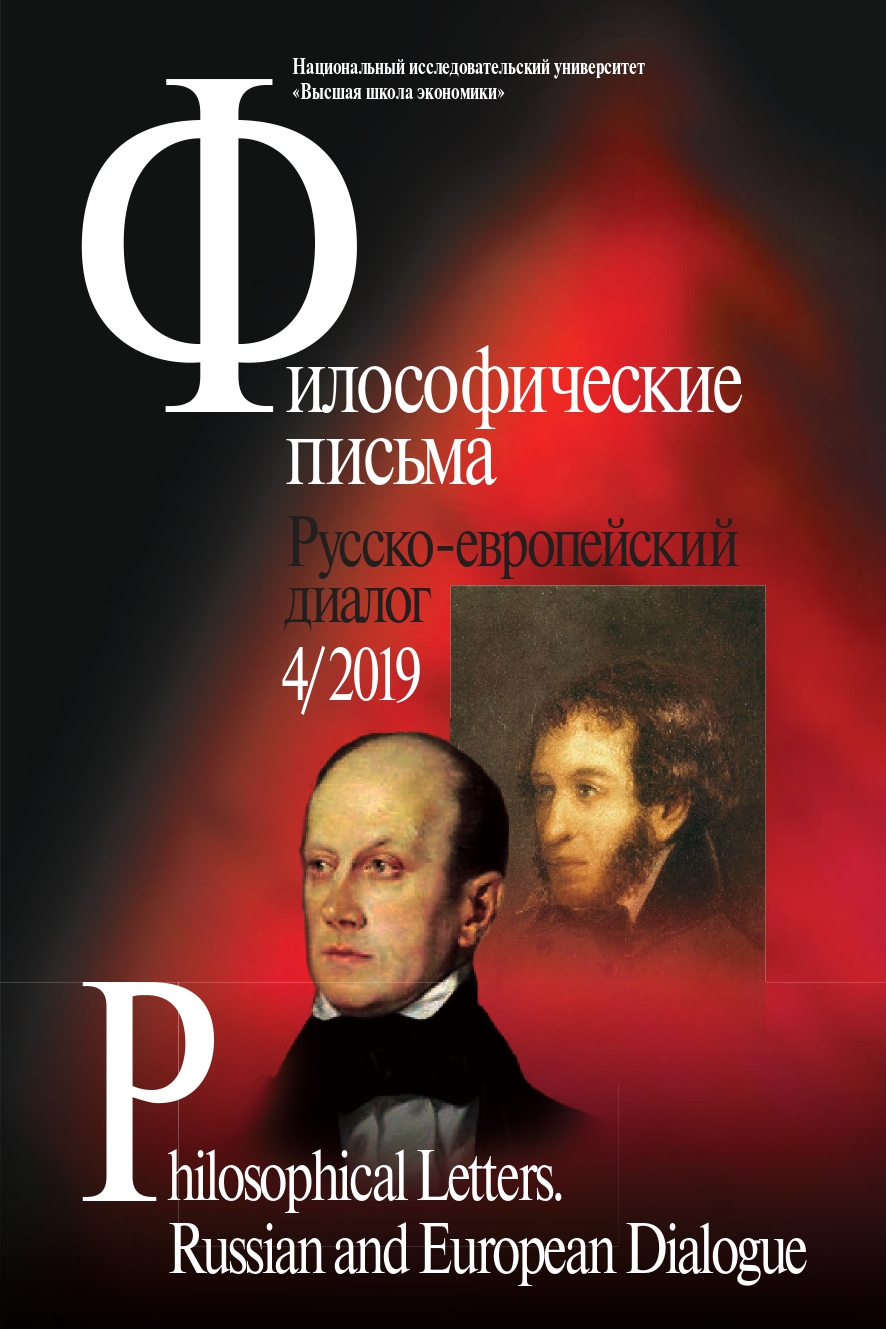Imitation of Chaadaev
The Third and Fourth Letters
Abstract
In these texts belonging to the genre of "philosophical letters", the problem of the responsibility of the religious philosophy of the Silver Age for the preparation of the Russian Revolution of 1905–1917 was raised. In the third letter, the author shows that the Russian existentialists did not problematize a political, but a spiritual revolution, preferring a revolution according to Marx a revolution according to Nietzsche. Denial of the very foundations of being, together with the human mind, led by Lev Shestov to the doctrine of the “great and final struggle” with universally valid truth, from Nikolai Berdyaev to the concept of a “personalistic revolution”. In the second part of the article, the author sketches the philosophy of the Internet, considering as a spiritual revolution the modern implementation of the Web in life. At the same time, the virtual world of the Network is compared with the “subjective world” — the dream of Russian existentialists.
The fourth letter compares two versions of Russian existentialism — the views of Shestov and Berdyaev. These views in the deep genre sense are variants of anthropodicy and, in a number of aspects, differ only in terminology. The author substantiates the apprenticeship of early Berdyaev in relation to Shestov: Berdyaev's personalism arose in dialogue with the Sheva philosophy of tragedy, marked by the strong influence of Nietzsche's ideas. The death of God and the birth of the superman: these central concepts of Nietzsche determined the nature of both theology and philosophical anthropology of Shestov and Berdyaev — dissidents in relation to their religious traditions.

